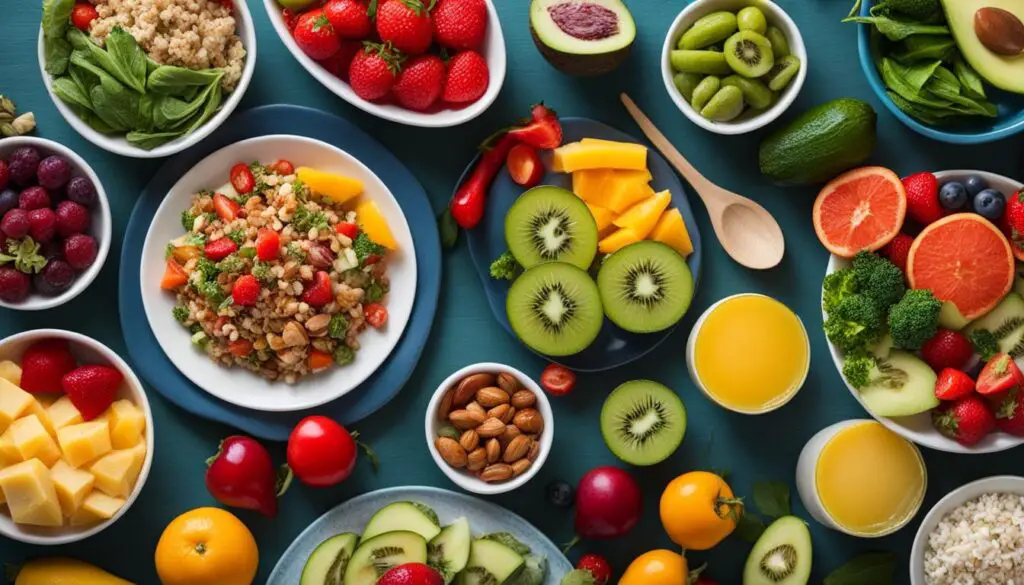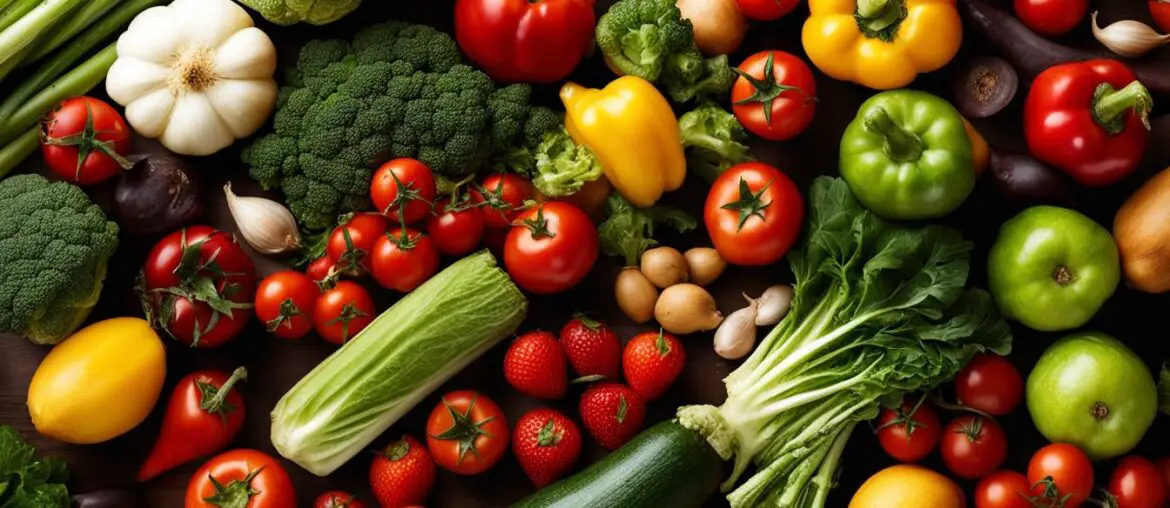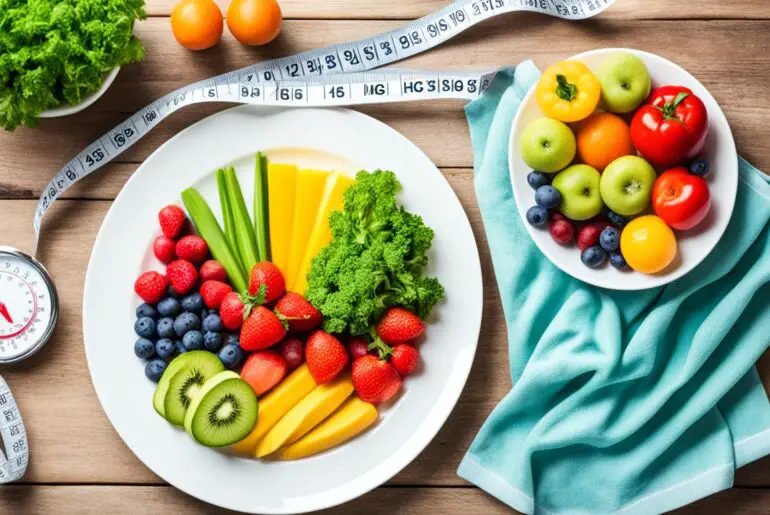Are you tired of battling hunger while trying to lose weight? Have you heard about the HCG diet and its supposed hunger-reducing benefits? But does it really work? Is it a viable solution for effective weight loss? Let’s delve into the world of the HCG diet and uncover the truth behind its hunger reduction strategies.
Many people turn to the HCG diet in hopes of achieving rapid weight loss. This diet consists of an extremely low-calorie intake of around 500-800 calories per day, accompanied by supplemental HCG injections. The theory is that HCG stimulates the body to use stored fat for energy, leading to weight loss without muscle loss.
But is this diet really as effective as it claims to be? Is it safe to restrict calories to such a low level? And what about the hunger that is typically associated with calorie restriction?
In this article, we will explore hunger reduction strategies on the HCG diet and examine the scientific evidence behind its claims. We will also discuss the potential risks and concerns associated with this diet. So, if you’re curious about the HCG diet and eager to learn more, let’s embark on this informative journey together!
Key Takeaways:
- The HCG diet involves a very low-calorie intake accompanied by HCG injections.
- Scientific evidence supporting the effectiveness of the HCG diet is limited.
- The FDA has not approved HCG for weight loss, and over-the-counter HCG products are not regulated.
- The HCG diet may pose potential risks and side effects.
- Sustainable weight loss relies on balanced diets and healthy lifestyle habits.
Understanding Hunger on the HCG Diet
While on the HCG diet, many individuals experience a lack of hunger despite consuming only 500 calories per day. This phenomenon is considered normal on the diet. It is important to ensure that the HCG used is fresh and potent, as degraded or ineffective HCG may lead to increased hunger.
Proper loading before starting the diet and spacing out meals throughout the day can also help manage hunger. Drinking plenty of water and herbal teas, as well as incorporating hot soups and extra vegetables into meals, can help curb hunger while on the HCG diet. Hunger control on the HCG Diet is a crucial aspect to consider for successful weight loss.
For individuals following the HCG Diet, understanding hunger management is essential to stay on track and achieve their weight loss goals. By implementing strategies such as ensuring the freshness and potency of HCG, proper loading, and incorporating hunger-curbing foods and fluids, individuals can effectively manage their hunger levels and stick to the HCG Diet plan.
To provide further context, here are some important points to consider:
- The HCG diet involves a low-calorie intake of around 500 calories per day.
- Despite the low calorie intake, many individuals experience a lack of hunger on the HCG diet.
- Fresh and potent HCG is essential to prevent increased hunger.
- Proper loading and spacing out meals throughout the day can help manage hunger.
- Drinking water, herbal teas, and incorporating hot soups and extra vegetables can help curb hunger.
By understanding hunger management on the HCG Diet, individuals can navigate their weight loss journey with greater ease and achieve their desired results.
| Key Points |
|---|
| While on the HCG diet, many individuals experience a lack of hunger. |
| Fresh and potent HCG is crucial for hunger control on the HCG Diet. |
| Proper loading and spacing out meals can help manage hunger. |
| Drinking water, herbal teas, and incorporating hunger-curbing foods can help curb hunger. |
Factors Affecting Hunger on the HCG Diet
Reducing hunger on the HCG Diet and curbing your appetite are crucial for a successful weight loss journey. However, several factors can contribute to increased hunger while on the HCG diet. It is essential to understand these factors to effectively manage your hunger levels and achieve your weight loss goals.
- Using expired or low-quality HCG: The quality and potency of the HCG used can affect hunger levels. Using expired or low-quality HCG may not provide the desired appetite-suppressing effects. Ensure that you are using fresh, high-quality HCG to optimize hunger reduction on the HCG diet.
- Improper loading before starting the diet: Loading, or consuming higher calorie and fat-rich foods, is an important part of the HCG diet preparation phase. Improper loading can impact hunger levels during the low-calorie phase. It is essential to follow the recommended loading protocol to support hunger reduction during the diet.
- Reaching a metabolic set point with weight loss: As you lose weight on the HCG diet, your body may reach a metabolic set point where hunger can increase. This is a natural response to calorie restriction. Incorporating proper loading, managing meal spacing, and adjusting HCG dosage can help manage hunger in this phase.
- Not taking enough HCG: The dosage of HCG plays a crucial role in hunger management on the HCG diet. Taking too little HCG can lead to increased hunger and diminished fat loss. It is important to follow the recommended dosage guidelines to optimize hunger suppression and weight loss results.
If you find that hunger persists despite taking these steps, it may be necessary to reevaluate your diet and potentially transition to the next phase of the HCG protocol or consult a healthcare professional for further guidance.
The HCG Diet Meal Plan

When following the HCG diet, it is important to have a structured and balanced meal plan. The HCG diet meal plan typically consists of two meals per day, lunch and dinner, each containing specific food groups to support weight loss and provide essential nutrients.
Here is a breakdown of the HCG diet meal plan:
| Meal Component | Food Choices |
|---|---|
| Protein | Lean meats like veal, beef, chicken breast, fresh white fish, lobster, crab, or shrimp. |
| Vegetables | Spinach, chard, chicory, beet greens, green salad, tomatoes, celery, fennel, onions, red radishes, cucumbers, asparagus, and cabbage. |
| Bread | One breadstick or one piece of melba toast. |
| Fruit | Orange, apple, strawberries, or grapefruit. |
It is important to note that butter and oils are not allowed on the HCG diet. By following this meal plan, individuals can ensure they are consuming adequate protein, fiber-rich vegetables, and a limited amount of carbohydrates and fruits.
Potential Risks and Concerns
The HCG diet carries potential risks and concerns that individuals should be aware of before embarking on this weight loss program. One of the primary concerns is the extremely low-calorie intake of 500-800 calories per day, which can lead to inadequate nutrition and potential nutrient deficiencies. Severely restricting caloric intake can deprive the body of essential nutrients needed for optimal health and well-being.
Furthermore, meeting protein and vitamin needs on such a low-calorie diet can be challenging without proper supplementation. Since the HCG diet restricts food choices and portion sizes, it is important to ensure that individuals are getting enough essential nutrients to support their overall health.
A significant concern related to the HCG diet is the lack of FDA approval for using HCG as a weight loss aid. The FDA has not approved the use of HCG for weight loss, and over-the-counter HCG products are not regulated. This lack of regulation means that the quality and effectiveness of these products cannot be guaranteed.
To ensure safety and address individual concerns or medical conditions, it is highly recommended to consult with a healthcare professional before starting the HCG diet. A healthcare professional can provide personalized guidance, evaluate potential risks, and determine if the HCG diet is appropriate for an individual’s specific needs.
“The HCG diet carries potential risks and concerns that individuals should be aware of before embarking on this weight loss program.”
In conclusion, while the HCG diet may offer rapid weight loss, it is essential to consider the potential risks and concerns associated with this diet plan. Severely restricting calorie intake can lead to inadequate nutrition and potential nutrient deficiencies, while the lack of FDA approval and regulation for HCG products raises concerns about their safety and effectiveness.
Vegetarian and Gluten-Free Considerations
The HCG diet is a weight loss program that primarily focuses on animal protein sources, making it unsuitable for vegetarians. However, with some modifications, vegetarians can participate in the HCG diet by incorporating additional sources of protein such as skim milk. It is important to note that due to the restrictive nature of the HCG diet, it is recommended to consult with a healthcare professional or registered dietitian before attempting it as a vegetarian.
Additionally, individuals following a gluten-free diet should be aware that the HCG diet is not inherently gluten-free. Some of the bread options included in the diet, such as melba toast, typically contain gluten. It is essential to read ingredient labels carefully and choose gluten-free alternatives when necessary.
For vegetarians and individuals with gluten sensitivities or celiac disease, it is crucial to tailor the diet plan according to specific dietary needs. Consulting with a healthcare professional or registered dietitian can provide personalized guidance and ensure that the HCG diet is safe and suitable for individual circumstances.
Lack of Scientific Evidence and FDA Non-Approval
Despite the widespread popularity of the HCG diet, there is a lack of scientific evidence supporting its effectiveness. Numerous studies have shown that any weight loss experienced while following the HCG diet can be attributed to the extremely low-calorie intake, rather than the use of HCG itself.
The FDA, which is responsible for ensuring the safety and efficacy of medical treatments, has not approved the use of HCG for weight loss. In fact, the FDA has issued warning letters to companies selling over-the-counter HCG products, emphasizing their lack of regulation and potential risks.
When it comes to weight loss, it is crucial to rely on well-established, evidence-based strategies that have been thoroughly tested and proven effective. Consulting with healthcare professionals and registered dietitians can provide personalized guidance and support in achieving optimal weight loss goals.
Potential Health Risks of HCG Diet
The HCG diet is not without potential health risks and side effects. The primary concern arises from the severe calorie restriction imposed by the diet, which can lead to various health complications.
One of the significant risks is the development of nutrient deficiencies due to inadequate calorie intake. The body may not receive sufficient vitamins, minerals, and essential nutrients, leading to fatigue, irritability, and potentially depression.
Moreover, the restrictive nature of the diet can result in gastrointestinal issues such as constipation, as the diet lacks the necessary fiber content. Dry skin and hair loss are additional side effects that individuals may experience due to nutrient deficiencies.
The injections of HCG used in the diet may also pose certain risks. Pain, bruising, infection, and allergic reactions can occur at the injection site. These side effects should be considered before embarking on the HCG diet.
Furthermore, there have been reports of serious adverse reactions associated with the HCG diet. Pulmonary embolism, cardiac arrest, and even death have been documented in rare cases. These instances highlight the importance of thorough consideration and consultation with a healthcare professional before undertaking the HCG diet.
To promote long-term health and sustainable weight management, it is advisable to follow a well-balanced diet plan that provides adequate nutrition and energy. The HCG diet, with its severe calorie restriction and potential health risks, may not be the ideal approach for achieving lasting results.
It’s essential to prioritize your health and well-being when considering any diet plan or weight loss strategy. Consultation with a healthcare professional is crucial to evaluate individual circumstances and make an informed decision.
The Importance of Sustainable Weight Loss

While the HCG diet may offer initial rapid weight loss, it is not a sustainable long-term solution. The severe calorie restriction of 500-800 calories per day, coupled with the lack of nutritional balance, makes it challenging to meet long-term weight loss goals and maintain overall health. While the diet claims to stimulate weight loss by burning stored body fat instead of muscle mass, the limited scientific evidence and lack of FDA approval raise concerns about its effectiveness and safety.
Sustainable weight loss requires a different approach. It relies on a balanced diet, regular physical activity, and behavior change. Achieving and maintaining optimal weight and overall well-being is not about quick fixes or extreme measures. It’s about adopting healthy lifestyle habits that can be sustained in the long run.
The Role of a Balanced Diet
A balanced diet is crucial for sustainable weight loss. It provides essential nutrients, vitamins, and minerals necessary for overall health and well-being. Rather than severely restricting calories, a balanced diet focuses on consuming nutrient-dense foods in appropriate portions. This allows the body to function optimally and promotes gradual and steady weight loss.
Here is an example of a well-balanced meal plan:
| Meal | Food Group |
|---|---|
| Breakfast |
|
| Lunch |
|
| Dinner |
|
A balanced meal plan includes a variety of food groups, such as lean proteins, whole grains, fruits, vegetables, and healthy fats. Portion control is also essential to avoid overeating and maintain a calorie deficit for weight loss.
The Importance of Regular Physical Activity
Physical activity is a key component of sustainable weight loss. It not only helps burn calories but also improves overall fitness and well-being. Incorporating both cardiovascular exercises and strength training into your routine can help increase muscle mass and boost metabolism, enabling your body to burn more calories even at rest.
Here are some examples of physical activities to include in your routine:
- Brisk walking or jogging
- Cycling
- Strength training with weights or resistance bands
- Yoga or Pilates
Choose activities that you enjoy and can stick to in the long run. Aim for at least 150 minutes of moderate-intensity aerobic activity or 75 minutes of vigorous-intensity aerobic activity per week, along with muscle-strengthening activities on two or more days.
“Sustainable weight loss relies on a balanced diet, regular physical activity, and behavior change.”
The Power of Behavior Change
Changing your behavior and mindset is crucial for sustainable weight loss. It’s not just about what you eat or how much you exercise but also about your relationship with food, your self-image, and your overall lifestyle choices.
Here are some behavior change strategies that can support sustainable weight loss:
- Setting realistic goals
- Practicing mindful eating
- Building healthy coping mechanisms instead of emotional eating
- Seeking support from friends, family, or a healthcare professional
- Monitoring progress and celebrating small victories
Behavior change takes time and effort, but it is essential for long-lasting results.
By focusing on sustainable weight loss strategies like a balanced diet, regular physical activity, and behavior change, you can achieve your weight loss goals while maintaining optimal health and well-being. It’s important to prioritize long-term maintenance rather than seeking quick-fix solutions like the HCG diet, which may have potential risks and limitations in the long run.
Conclusion
The HCG diet, which claims to reduce hunger and accelerate weight loss, has become popular among individuals looking for a quick solution to their weight-related concerns. However, it is important to approach this diet with caution. The scientific evidence supporting the effectiveness of the HCG diet is limited, and the severe calorie restriction it entails can pose potential risks and challenges for long-term weight management.
To achieve sustainable weight loss, it is recommended to focus on hunger reduction techniques that promote a well-balanced diet and regular physical activity. By adopting these strategies, individuals can create a healthier and more sustainable lifestyle for themselves. It is always beneficial to seek guidance from healthcare professionals and registered dietitians who can provide personalized advice and support throughout the weight loss journey.
In conclusion, while the HCG diet may offer initial weight loss, its severe calorie restriction and lack of nutritional balance make it a less favorable option for long-term success. Instead, embracing a comprehensive approach to weight management that prioritizes sustainable practices is key. By doing so, individuals can achieve their weight loss goals while promoting overall health and well-being.
FAQ
What is the HCG diet?
The HCG diet involves a very low-calorie diet of around 500-800 calories per day, accompanied by supplemental HCG injections. It claims to stimulate weight loss by burning stored body fat instead of muscle mass. However, the FDA has not approved the use of HCG for weight loss, and over-the-counter HCG products are not regulated.
How can I reduce hunger on the HCG diet?
While on the HCG diet, many individuals experience a lack of hunger despite consuming only 500 calories per day. To manage hunger, ensure the HCG used is fresh and potent, properly load before starting the diet, space out meals throughout the day, drink plenty of water and herbal teas, and incorporate hot soups and extra vegetables into meals.
What factors can contribute to increased hunger on the HCG diet?
Several factors can contribute to increased hunger on the HCG diet, including using expired or low-quality HCG, improper loading before starting the diet, reaching a metabolic set point with weight loss, and not taking enough HCG. It is important to ensure the HCG used is fresh, properly load before starting the diet, and take the correct dosage of HCG.
What does the HCG diet meal plan consist of?
The HCG diet meal plan typically consists of two meals per day, lunch and dinner, with each meal including one protein, one vegetable, one bread, and one fruit. Protein options include lean meats like veal, beef, chicken breast, fish, lobster, crab, or shrimp. Vegetable choices include spinach, chard, chicory, beet greens, green salad, tomatoes, celery, fennel, onions, radishes, cucumbers, asparagus, and cabbage. Bread options are limited to one breadstick or piece of melba toast, and fruit options include orange, apple, strawberries, or grapefruit. Butter and oils are not allowed on the HCG diet.
What are the potential risks and concerns of the HCG diet?
The HCG diet poses potential risks and concerns, including inadequate nutrition, potential nutrient deficiencies, and the challenge of meeting protein and vitamin needs on such a low-calorie diet. The FDA has not approved HCG for weight loss, and over-the-counter HCG products are not regulated. Consultation with a healthcare professional before starting the diet is recommended.
Is the HCG diet suitable for vegetarians and those on a gluten-free diet?
The HCG diet is not suitable for vegetarians as it primarily focuses on animal protein sources. Vegetarians would need to make modifications, such as incorporating additional skim milk for protein. The HCG diet is not inherently gluten-free, as it includes bread options like melba toast, which typically contains gluten. Consultation with a healthcare professional or registered dietitian is recommended before attempting the HCG diet as a vegetarian or gluten-free.
Is there scientific evidence supporting the effectiveness of the HCG diet?
Despite its popularity, scientific evidence supporting the effectiveness of the HCG diet is lacking. Most studies have found that any weight loss experienced on the HCG diet can be attributed to the very low-calorie intake rather than the use of HCG. The FDA has not approved HCG for weight loss and has issued warning letters to companies selling over-the-counter HCG products.
What are the potential health risks of the HCG diet?
The HCG diet poses potential health risks, including fatigue, irritability, depression, nutrient deficiencies, constipation, dry skin, and hair loss. Injections of HCG may cause pain, bruising, infection, and allergic reactions. Serious adverse reactions, including pulmonary embolism, cardiac arrest, and death, have also been reported.
Why is sustainable weight loss important?
While the HCG diet may offer initial rapid weight loss, the severe calorie restriction and lack of nutritional balance make it challenging to meet long-term weight loss goals and maintain overall health. Sustainable weight loss relies on a balanced diet, regular physical activity, and behavior change. It is recommended to adopt healthy lifestyle habits that can be maintained in the long run to achieve and maintain optimal weight and overall well-being.
What is the conclusion regarding the HCG diet?
The HCG diet claims to reduce hunger and accelerate weight loss, but the scientific evidence supporting these claims is limited. The diet’s severe calorie restriction and lack of nutritional balance pose potential risks and challenges for long-term weight management. It is recommended to focus on sustainable weight loss strategies, such as a well-balanced diet and regular physical activity, and consult healthcare professionals for personalized guidance.




